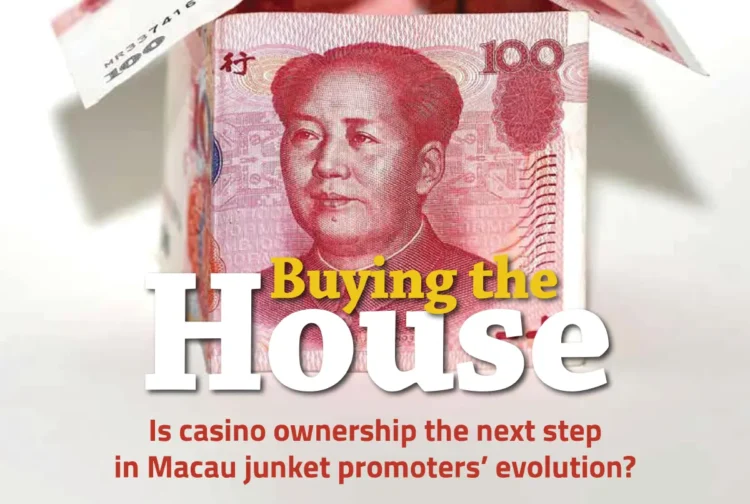In this regular feature in IAG to celebrate 20 years covering the Asian gaming and leisure industry, we look back at our cover story from exactly 10 years ago, “Buying the house”, to rediscover what was making the news in December 2015!
Asia’s casino landscape would be very, very different had it played out the way it was envisioned just a decade ago. And it would have been a world in which Macau’s large-scale junkets had not only persisted but evolved to become genuine custodians of casino operations around the region.
In the December 2015 issue of Inside Asian Gaming, we delved into the rising trend of junkets buying part or all of casinos. There were, as we observed, plenty of examples.
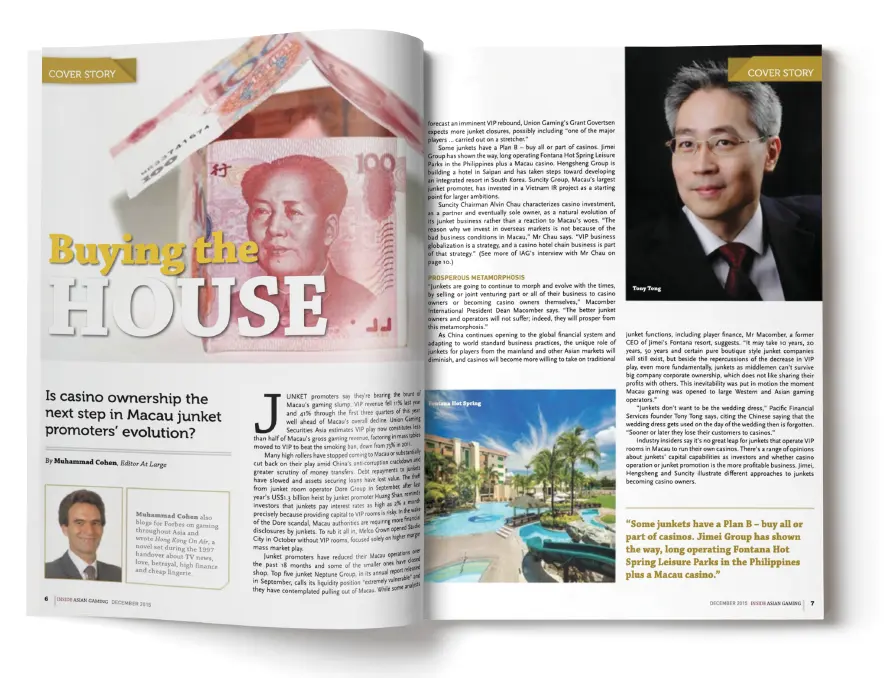 Jimei Group, which at one stage ran its own Macau casino – Jimei Casino – under a satellite-style arrangement plus junket rooms in at least seven major properties, is acknowledged as having pioneered casino ownership by junkets via Fontana Leisure Parks in Clark, Philippines. Originally hired to run the property’s newly-licensed casino in 2004, Jimei eventually took control of the leisure park operation as well, where it ran a comprehensive residential and entertainment facility comprising some 500 duplex homes and villas that once housed US military personnel, a small theme park, tennis and basketball courts, dining and retail facilities and two adjacent 18-hole golf courses.
Jimei Group, which at one stage ran its own Macau casino – Jimei Casino – under a satellite-style arrangement plus junket rooms in at least seven major properties, is acknowledged as having pioneered casino ownership by junkets via Fontana Leisure Parks in Clark, Philippines. Originally hired to run the property’s newly-licensed casino in 2004, Jimei eventually took control of the leisure park operation as well, where it ran a comprehensive residential and entertainment facility comprising some 500 duplex homes and villas that once housed US military personnel, a small theme park, tennis and basketball courts, dining and retail facilities and two adjacent 18-hole golf courses.
Its casino, designed to “cater to foreign junket players and certified club members, at one stage housed around 150 gaming tables and a similar number of machines.
Another Macau junket, Hengsheng Group, identified an opportunity for casino ownership in Saipan – the largest island in the Commonwealth of the Northern Mariana Islands. Operating as Imperial Pacific International after acquiring and renaming a Hong Kong-listed food processing company, Hengsheng Group lobbied for casino gaming to be legalized on Saipan and then secured the island’s only license after promising to develop a US$3 billion integrated resort and pay millions in community contributions annually for the privilege. It later outlined plans to go even grander by way of a US$7.1 billion, five-phase development plan encompassing 4,252 hotel rooms, 300 villas, 1,600 gaming tables and 3,500 slot machines at two sites: a town hotel and a beach resort. Even then the plan seemed ambitious.
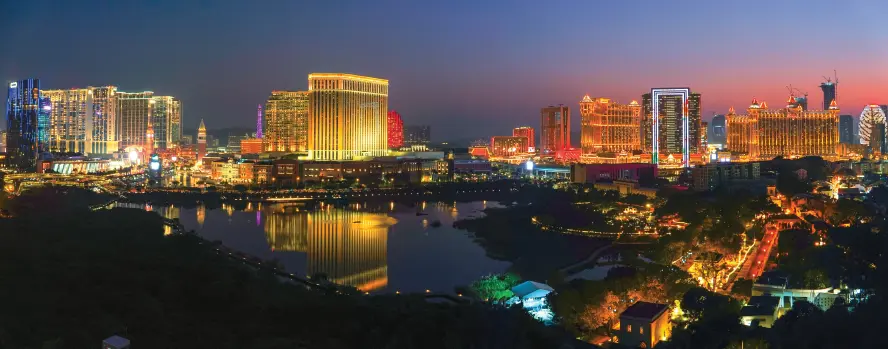 Suncity Group, for many years Macau’s largest junket operator – at least of those with a public persona – was another to recognize casino ownership as the way forward. In March 2015, it revealed a partnership with Hong Kong jewelry giant Chow Tai Fook and Vietnam’s VinaCapital to develop an integrated resort near Hoi An – the property that would become Hoiana. Like most junket-linked casino concepts, Hoiana was envisioned to capitalize on Suncity’s extensive VIP database by offering players an alternative to the Macau model – one with beaches and golf courses and luxury villas for rental or purchase. A far more modest tax regime would also allow the casino to provide more attractive rebates.
Suncity Group, for many years Macau’s largest junket operator – at least of those with a public persona – was another to recognize casino ownership as the way forward. In March 2015, it revealed a partnership with Hong Kong jewelry giant Chow Tai Fook and Vietnam’s VinaCapital to develop an integrated resort near Hoi An – the property that would become Hoiana. Like most junket-linked casino concepts, Hoiana was envisioned to capitalize on Suncity’s extensive VIP database by offering players an alternative to the Macau model – one with beaches and golf courses and luxury villas for rental or purchase. A far more modest tax regime would also allow the casino to provide more attractive rebates.
In fact, all of the jurisdictions mentioned above – plus South Korea where Hengsheng Group also showed some interest – were seen by junkets as low tax alternatives to the 40% effective tax paid by concessionaires in Macau.
As IAG noted at that time, Saipan had no gaming tax, Clark offered a discount on the Philippine’s already low rates – 5% for VIP play and 17% for mass market – South Korea a total 14% rate and Vietnam an effective 17% tax rate under rules that allow commission to be deducted from revenue.
This move towards ownership was necessitated, IAG wrote at the time, by a combination of declining VIP revenues and an expectation that existing casino operators were becoming more open to the idea of offering credit to players rather than letting junkets do so and having to share profits.
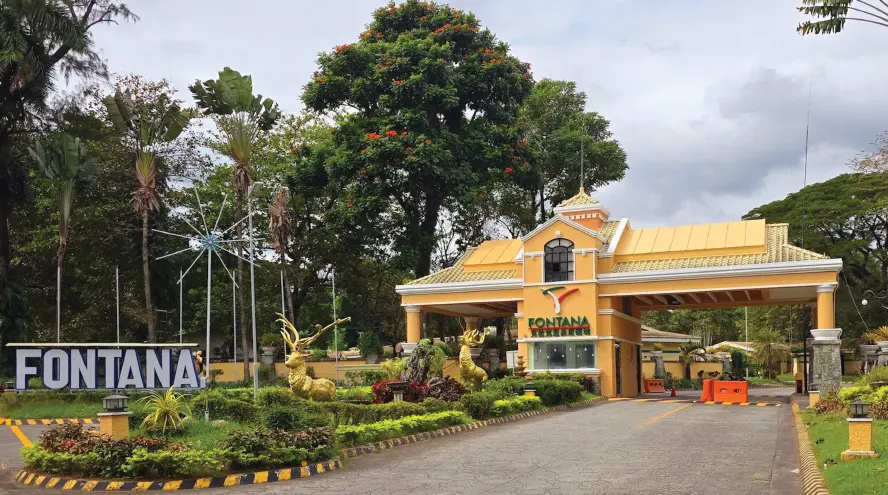
“It may take 10 years, 20 years, 50 years and certain pure boutique style junket companies will still exist, but beside the repercussions of the decrease in VIP play, even more fundamentally, junkets as middlemen can’t survive big company corporate ownership, which does not like sharing their profits with others,” Macomber International President Dean Macomber told IAG back in 2015.
As a result, “Junkets are going to continue to morph and evolve with the times, by selling or joint venturing part or all of their business to casino owners or becoming casino owners themselves,” he continued. “The better junket owners and operators will not suffer; indeed, they will prosper from this metamorphosis.”
So, what happened? The Suncity story has been well told, with the arrest of CEO Alvin Chau in late 2020 leading to the collapse of the company’s junket arm and the main source of funding for the listed Suncity Group entity that was involved in its real estate and casino ownership interests.
Changing its name to LET Group in 2022, the company still owns a majority stake in Russian casino Tigre de Cristal but recently sold off its interest in Hoiana and most of its interest in a US$1.25 billion hotel and casino it was pursuing in Manila’s Entertainment City.
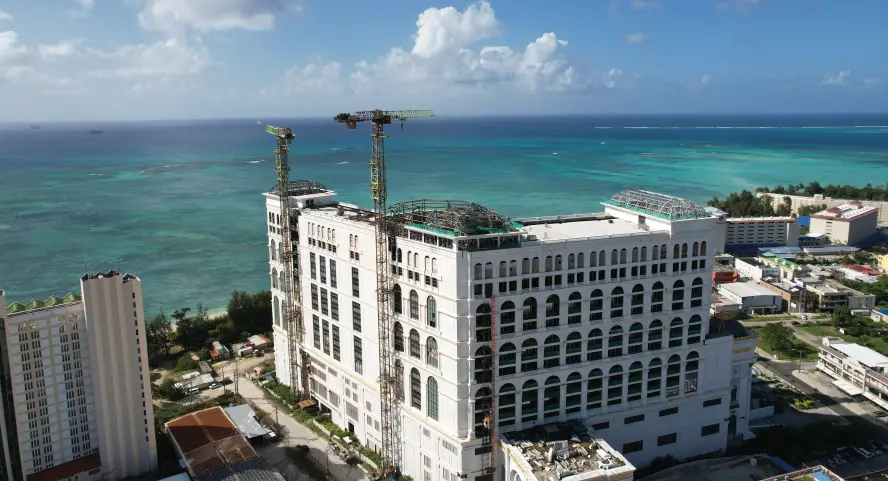
Jimei Group’s Fontana was in 2016 ordered closed by the Philippine government for alleged illegal gaming operations and suspicion that up to 1,300 Chinese nationals were working at the complex illegally. Operating more recently as a much smaller casino of around a dozen tables and well under 100 machines, Fontana was earlier this year issued a cease-and-desist order by the Clark Development Corporation to immediately halt all operations for failure to meet its financial obligations under a lease agreement.
It is unclear if or when Jimei sold its stake in Fontana, although one-time Macau junket identity Jack Lam is known to have disposed of his 65% stake in Jimei in 2017.
As for Hengsheng Group and Imperial Pacific International (IPI), its Saipan IR development stalled during the COVID-19 pandemic after failing to meet its own financial obligations by way of missed license fee payments and mandatory community contributions. Its casino license was suspended in April 2021.
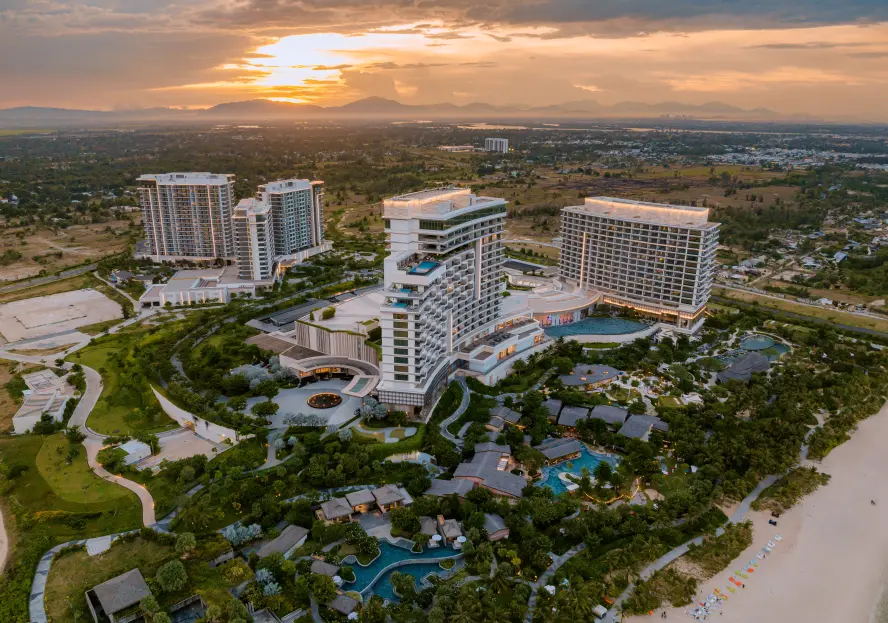
IPI’s downfall has been protracted on the back of various legal challenges and multiple claims by vendors on money owed to them, however the past year has seen many of the company’s assets auctioned off and the reported sale of its stalled hotel and casino development to a related party.
Junket ownership of Asian casinos once seemed the way of the future. Turns out it was just a fleeting dream.






